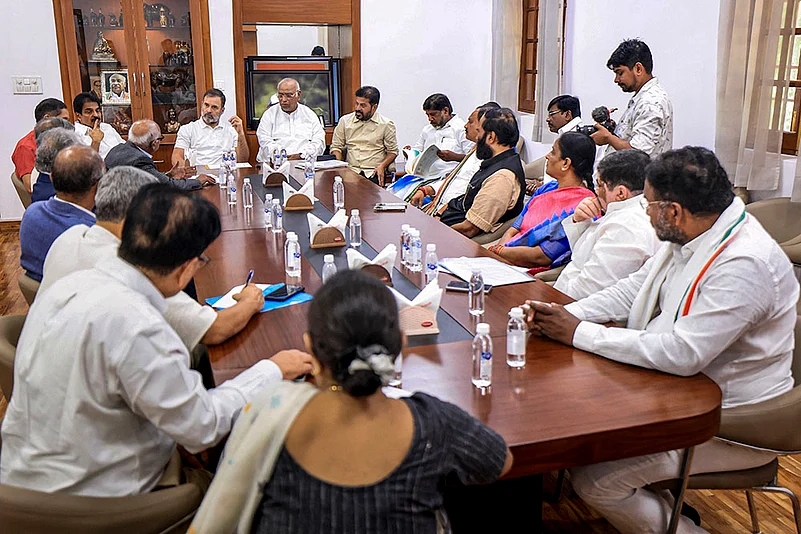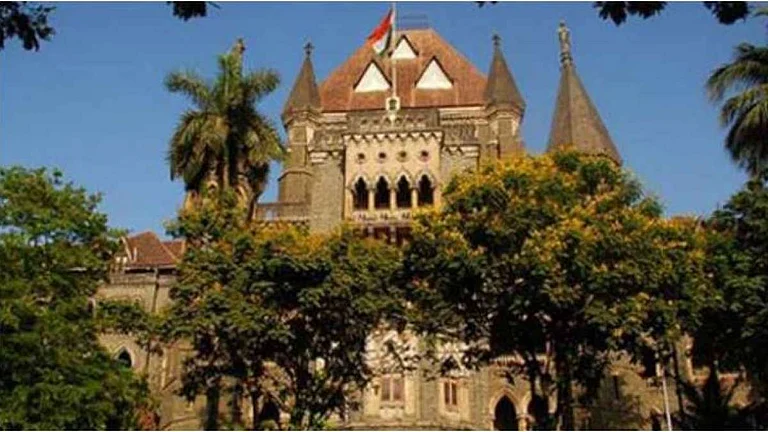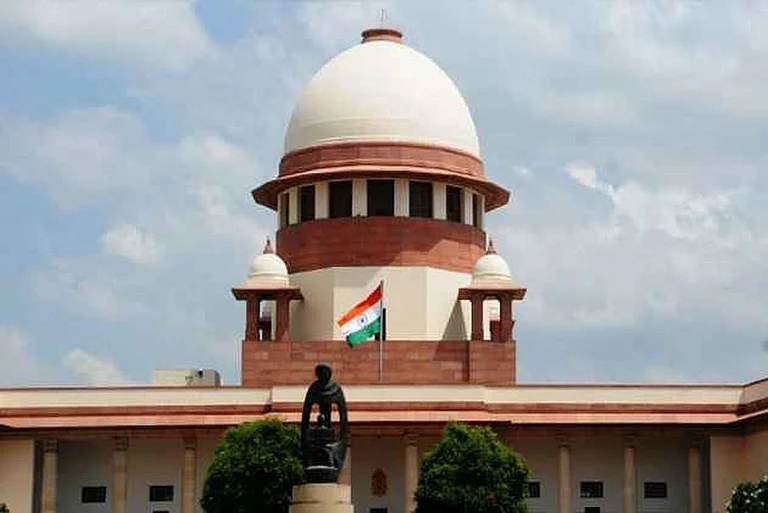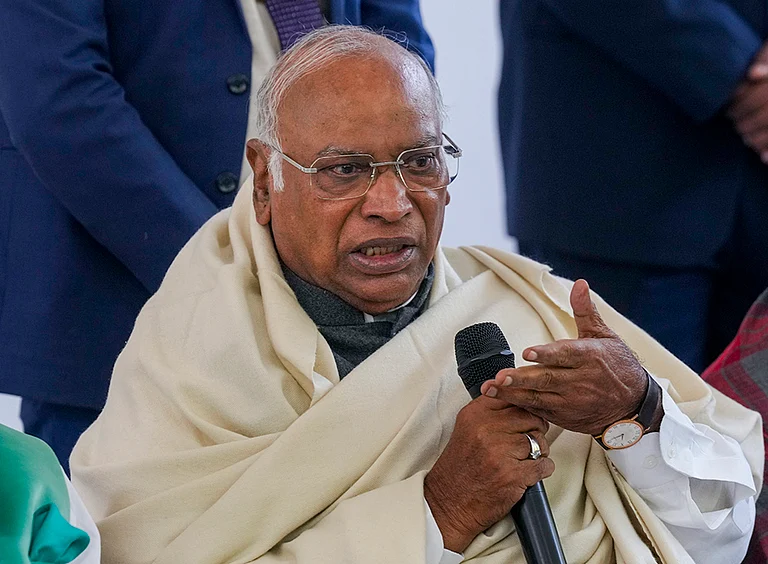
• Telangana Congress ties its fortunes to Backward Class quota hike.
• Move stirs opposition, appeals to INDIA bloc, sets stage for court clash.
• Local body polls will reveal if promise translates to electoral support.
In the first week of August, Telangana Chief Minister A Revanth Reddy and a high-profile delegation of the Indian National Developmental Inclusive Alliance (INDIA) staged a dharna at Jantar Mantar, the ticking centre of Delhi’s political heart. Their demand was simple but its impact potentially seismic: they sought presidential assent to a state legislation providing 42 per cent reservation to Backward Classes in education, employment and local governance.
The protest symbolised a strategic gambit by the Congress party to capture the largest voter base in Telangana—the Backward Classes, constituting over half the state’s population. The backbone of this political strategy lies in the state’s unique social structure. According to the Socio-Economic, Education, Employment, Political and Caste (SEEEPC) Survey of 2024—the most comprehensive caste census conducted in the state—Backward Classes account for approximately 56.33 per cent of the population. Breaking it down, 46.25 per cent are Hindu and around 10.08 per cent are Muslim members of a backward class.
This demographic majority, largely scattered across rural and semi-urban Telangana, represents a diverse, complex constituency that’s typically wooed with welfare schemes and subsidies but never offered structural empowerment—which the Congress seems to be attempting.
But independent experts say the move is easier said than done. “As long as the BJP holds power at the Centre, obtaining presidential assent for the reservation would be impossible. After all, it would only benefit the Congress and be a losing proposition for the BJP,” Prof K Nageswar, a political analyst and former Member of the Legislative Council, tells Outlook.
Secondly, he says, the BJP at the national level does not want reservations to cross the threshold of 50 per cent reservation laid down by the Supreme Court. This is evident in states like Gujarat, where a 2015-16 movement by the relatively dominant Patidar/Patel social group demanding inclusion in the state's Other Backward Classes reservation was crushed. “Even if it gets a presidential nod, there would be legal challenges to the backward class reservation hike proposed in Telangana,” says Prof Nageswar.
During the K Chandrashekar Rao (KCR) term in power, his party, the Bharat Rashtra Samithi (BRS) gained strong support from backward voters through welfare schemes and targeted subsidies, which have been a mainstay of its politics since the party's inception. These efforts maintained a significant vote bank but rarely translated into political empowerment or representation in leadership for members of backward communities.
The Congress’s move to raise the quota from 23 to 42 per cent—a figure closer to the population share of backward classes—signals a shift from so-called handouts to structural change. It promises more opportunities in government jobs, education and local body representation, translating into more agency and influence for community members.
By positioning itself as the guardian of backward-class interests with a promise backed by empirical data and legislation, Congress is trying to lay the groundwork for long-term political loyalty from this massive section of voters.
This promise of enhanced reservations was not a last-minute gambit but a promise it made during the 2023 Assembly election, formalised as the Kamareddy Declaration. By legislating the enhanced quota soon after the election, Congress has tried to demonstrate it can keep its word—a significant advantage in Telangana, where voters have grown sceptical of political promises.
The BJP’s opposition hinges on a constitutional argument against religion-based reservation, citing Supreme Court rulings. However, critics say that BJP-ruled states, including Gujarat, do implement reservations for Muslim communities, exposing a contradiction in its stance. It is the Congress’s argument that backwardness is determined not on religious basis but on the grounds of social and educational attainments of a particular group, regardless of religious identity. (The SEEEPC survey counted Muslim Backward Classes separately, estimating them at just over 10 per cent of the total backward population.)
While the BJP is yet to develop a comparable credible mobilisation of backward communities in Telangana, Congress leaders and activists maintain that the inclusion of Muslims is essential for genuine social justice, for several Muslim communities face similar socio-economic disadvantages as the Hindu Backward Classes. The move aligns with the Congress’s broader agenda of avoiding sectarian fault lines.
Broadening its support base to also reach marginalised Muslim groups could be a critical advantage in Telangana’s plural social fabric. The Telangana quota struggle has also become a focal point in national politics. Opposition parties within the India Alliance, including the Dravida Munnetra Kazhagam, the Samajwadi Party and the Nationalist Congress Party have voiced strong support for it. Dravida Munnetra Kazhagam MP Kanimozhi has opposed the 50 per cent cap on reservation, pointing out Tamil Nadu’s 69 per cent reservation, and saying that justice should not be capped.
Samajwadi Party and Nationalist Congress Party leaders have also pledged solidarity, framing the quota fight as part of a broader appeal for social justice and proportional representation for backward classes across the country.
This signals Congress’s effort to nationalise the issue, creating a template for caste-based mobilisation that can be replicated in other states before the 2026 Lok Sabha election.
The Supreme Court has mandated a 50 per cent ceiling on reservations, raising the prospect of judicial challenges to the Telangana decision. Aware of this, the Congress-led state government ensured the SEEEPC survey was comprehensive and scientific and constituted an expert committee led by retired bureaucrat Busani Venkateswara Rao and retired judge Justice Sudarshan Reddy to validate the data and support the legal case for quota expansion.
Moreover, the Telangana government promulgated an ordinance to lift the 50 per cent cap on reservations in local body elections, which is also pending presidential assent.
If the courts uphold the enhanced reservations, Congress will have delivered a historic victory for Backward Classes and consolidated its political base. If the move is struck down or stalls indefinitely, the party is ready to position itself as a victim of Delhi’s obstructionism—a narrative designed to rally grassroots sympathy.
Telangana’s rural local body elections, mandated by the High Court to be held by September 30, represent a critical political test for the Congress government. These polls will be the first opportunity for backward communities to exercise their enhanced political representation.
Currently, the Telangana Cabinet has only three backward class ministers, and enhanced reservations are expected to produce a new generation of leaders rooted in local governance structures and loyal to the Congress. For this reason, party insiders regard these elections as a “mid-term referendum” on Revanth Reddy’s tenure.
The BRS, while supportive of the reservation in principle, has accused Congress of insincerity and political grandstanding. BRS leaders like MLC Dasoju Sravan have criticised the hurried approach and suggested that Congress should have pursued all-party consensus and Supreme Court approval before pushing the bills. K Kavitha, a prominent BRS leader, has also demanded separate reservations for Muslims, reflecting intra-party tensions and the complex caste-religion dynamics in Telangana.
BRS leader TRS Sravan is strident in his criticism, telling Outlook, “The Congress may be engaging in significant propaganda regarding the issue, but it lacks sincerity. It conducted a questionable caste census and allowed an expert committee to recommend action on it without public scrutiny. Why has it not placed the census data in the public domain? It is misleading the backward classes, and people know it.”
For Congress, this campaign is more than an affirmative action policy. It is a long-term political investment. The party has built a broad coalition of backward communities around promises of representation “proportionate to population”, a slogan resonating deeply with communities that have historically been marginalised.
At the same time, the party’s assertive stand on the issue is reshaping Telangana’s social justice narrative, challenging KCR’s welfare-focused model, bound to force rivals to recalibrate their strategies. As the state edges closer to crucial local elections, the issue is set to be the defining political theme.
However, though the Telangana Legislative Assembly passed two bills in March 2025—The Telangana Backward Classes, Scheduled Castes and Scheduled Tribes (Reservation of Seats in Educational Institutions and of Appointments or Posts in Services) Bill and The Telangana Backward Classes (Reservation of Seats in Rural and Urban Local Bodies) Bill—both have yet to take the shape of law. They were forwarded to Governor Jishnu Dev Verma, and then to President Draupadi Murmu for her assent. When the assent did not come through, Congress leaders moved their demand to Jantar Mantar in Delhi, pressuring the central government and raising visibility for their cause.
Meanwhile, the BJP’s reaction to the quota hike has also been ambivalent and contradictory. While the party’s Telangana unit initially supported the Bill in the Assembly, its central leaders have since vociferously opposed the inclusion of Muslim Backward Classes within the quota. Union Minister of State for Home Affairs Bandi Sanjay Kumar accused the Congress of diverting 10 per cent of the backward quota to Muslims, thereby reducing the share of Hindus to 32 per cent. He labelled it a “Muslim declaration” and warned of a “strategy” to marginalise the Hindu majority.
































